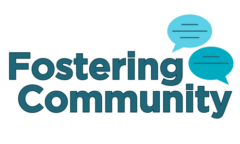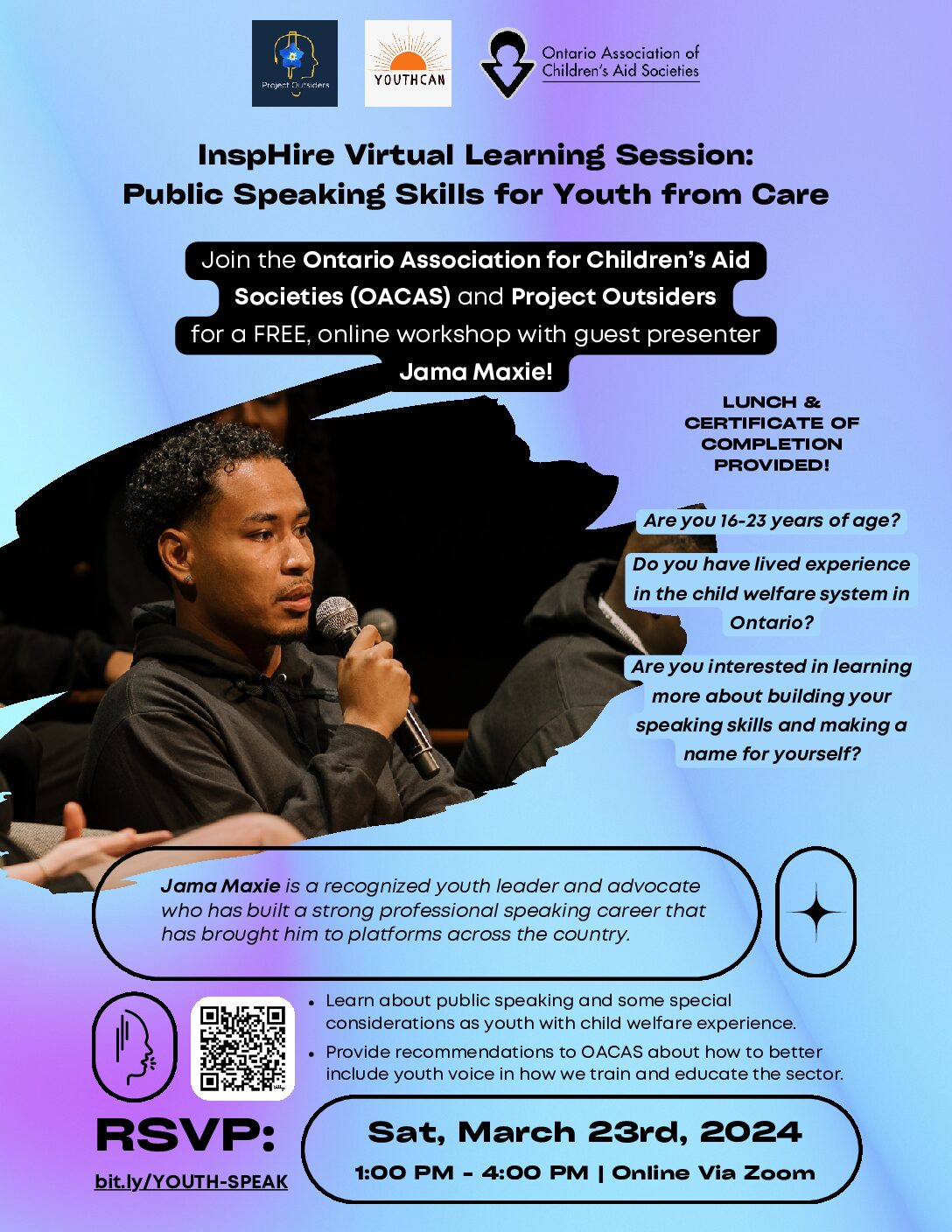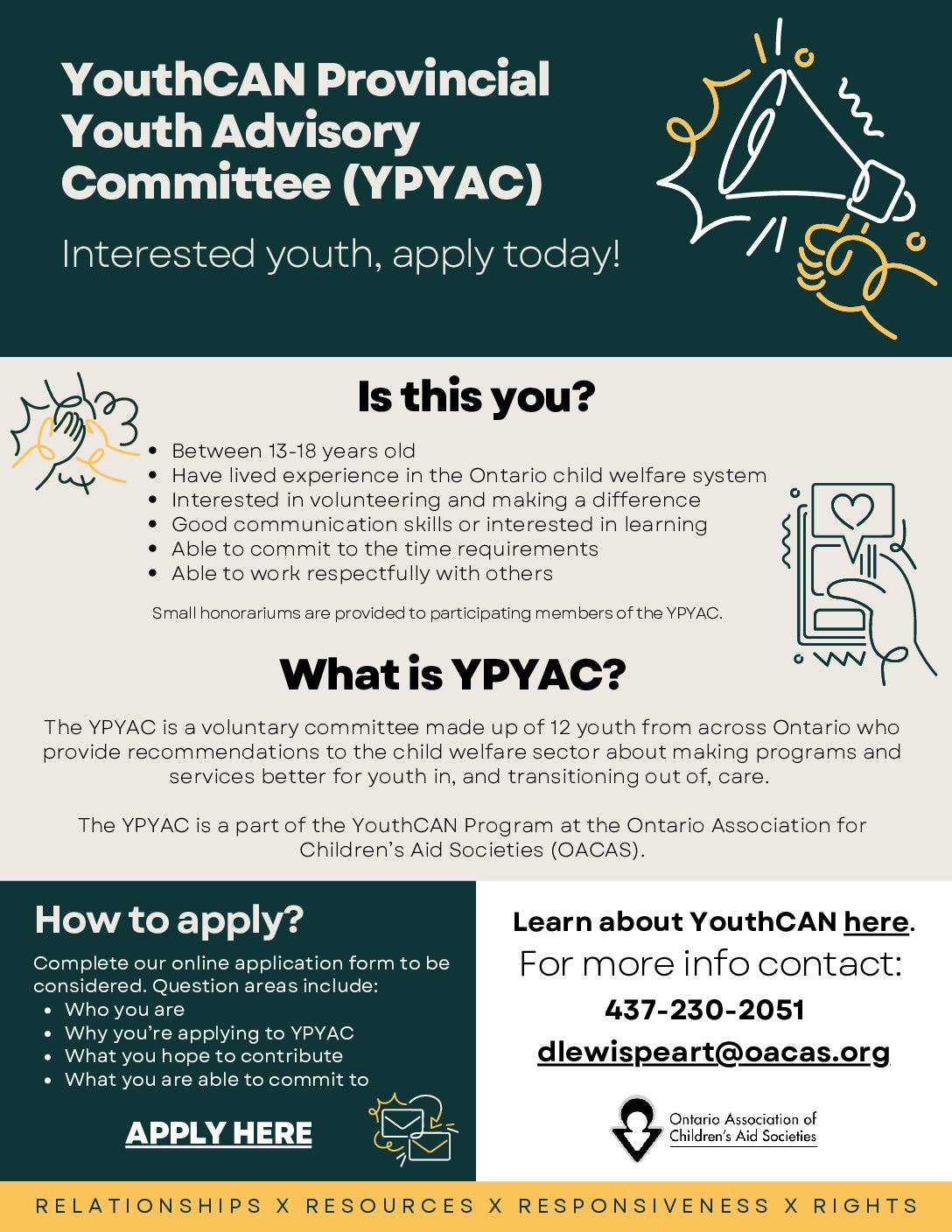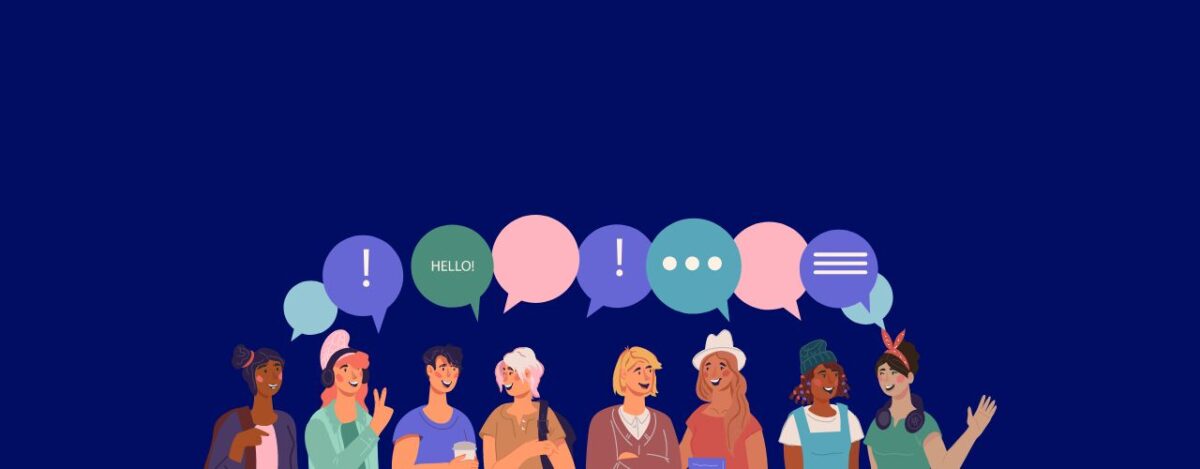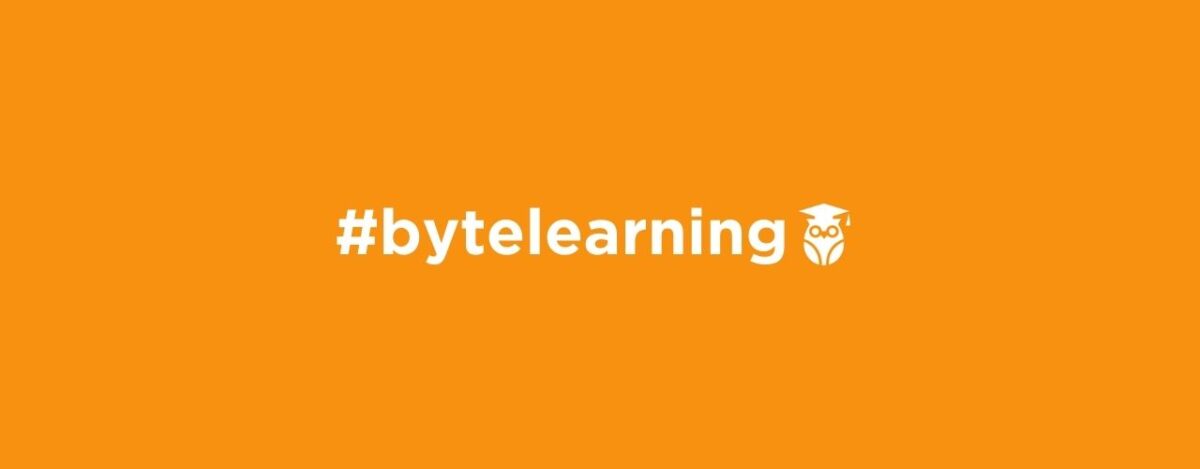- The Ontario Association of Children’s Aid Societies (OACAS) is recruiting for youth 13 – 18 years of age (and up to 21 years) for the YouthCAN Provincial Youth Advisory Committee (YPYAC). The application link is enclosed & can also be found here.
- YouthCAN is also in need of some folks who would like to be a part of a small committee (made up of former YAC youth, YouthCAN Champions and other child welfare and OACAS staff) to review their YPYAC applications. If this is you, please email David Lewis-Peart directly at dlewispeart@oacas.org to confirm your interest. Reviews will take place between March 15th – 31st.
- OACAS and Project Outsiders are set to co-host a FREE, online workshop with guest presenter Jama Maxie on Saturday March 23, 1-4PM. The workshop is entitled, InspHire Virtual Learning Session: Public Speaking Skills for Youth from Care and is open for registration for up to 30 youth between the ages of 16 and 23 years of age with lived experience in the child welfare system in Ontario. Please RSVP through the flyer above. This is filling up fast!
Category: Peer Connections
Recruitment open for YouthCAN Provincial Youth Advisory Committee (YPYAC) at OACAS
The Ontario Association of Children’s Aid Societies (OACAS) is recruiting youth 13-18 years of age for their YouthCAN Provincial Youth Advisory Committee (YPYAC). The recruitment launched at their February 15th YouthCAN Town Hall and will remain open until March 15th. The application link is enclosed & can also be found here.
The YPYAC is a voluntary committee made up of 12 youth from across Ontario, with 2 youth representing each of the 6 zones (Central, Eastern, Southwest, Grand River, Northern, and Northeast).
The purpose of the YPYAC is to use their youth voices to make recommendations to the Ontario child welfare sector about:
- The development and delivery of provincial programs for youth in and transitioning from the Ontario child welfare system.
- Advocacy to improve the experiences of children and youth in and from care.
The YPYAC will be supported by the Youth Services Analyst and the work of the YouthCAN Champion Network Group and Executive.
Eligible youth should:
- Be primarily between 13-18 years old (with allowance for up to 21 years of age)
- Have lived experience in the Ontario child welfare system.
- Be interested in volunteering to use their voice to make a difference.
- Have good communication skills or are interested in building those skills.
- Be able to commit to the time required for the YPYAC.
- Be willing to complete the necessary training (i.e. 3-day, virtual Youth4Change Orientation)
- Be able to work respectfully with other youth and adults in a group setting.
All submissions will be reviewed by a committee including OACAS and member agency staff and former YPYAC members.
Applicants who meet the eligibility criteria will be considered based on the strength of their responses and their ability to commit to the expectations of the role. OACAS seeks members who represent the wide diversity of youth in care and across the zones.
Important YPYAC Dates
| February 15th | YPYAC recruitment launched, and online submissions opened for youth to apply. |
| February 15th – March 15th | Online submissions remain open for youth applications. |
| March 15th | Online submissions close. |
| March 15th – 31st | Applications are reviewed and final decisions made about selections. |
| March 31st | All selected youth to be notified by email and/or phone and information package sent. |
| April 6th, 13th, 20th | Youth4Change Orientation Days 1-3 will be held with onboarded youth virtually. |
| May 9th* | In-person team building day in advance of Child and Youth In Care Day (CYICD) |
Honorariums are provided for those selected as YPYAC members and who regularly attend and engage in scheduled meetings.
Questions related to the application can be directed to, David Lewis-Peart, Youth Services Analyst, at dlewispeart@oacas.org or by phone 437-230-2051.
4 Things to Remember When You’re Learning to be a Better Listener
If you’re anything like me, you have a hard time active listening. Sometimes there’s too much going on near by, I’m distracted by a notification on my phone or computer, or I’m following their words slower than I should be. I try to focus on that person as best I can, but often it’s difficult to hold a whole conversation feeling this way. Following these tips below, I am better able to focus and be present in a conversation and take the time my brain needs to catch up.
Remember these four tips so you can become a better listener:
Listen, Listen, Listen
When you’re listening to someone, try your best to be present. If you struggle with this, do not be afraid to ask the person to step further away from a crowd if that lessens distractions, or ask them to repeat themselves. Try to be mindful when you can, so if you’re on the phone, try to only be on the phone without multitasking if you have a hard time following along. It’s okay if you don’t always have something to say, sometimes being present and listening is what the other person needs.
Body Language
Try to be mindful of how you best communicate. Are you better in person? Seeing someone’s face? If body language helps you pay attention, try to use video chats or in-person conversations as your go to. Sometimes we can also make interesting faces or motions during conversations so you may want to make sure you are aware of your own body language.
Take Time to Think
Whether you’re talking on the phone, in-person, or online, try to pause before you speak. Take as long as you need if you’re still trying to process any information. This can help your brain catch up and gives you more time to come up with a thoughtful question or comment. This is also a great time to ask them to repeat something if you’re missing any information.
Know Who You’re Talking to
Depending on who you are communicating with, you may use different short forms or abbreviations. It’s important to be conscious about who you’re talking to so you can speak in the most appropriate way. You may use more formal language with your boss, but use “lol” and “that slaps” with your friends.
Create Healthy Boundaries with your Friends with #bytelearning
Learning bytes are short courses, typically no more than 6 minutes, that are designed to be easy to digest. You can search Rumie’s library for the topics you would like to learn, then choose a course and start learning!
This week’s #bytelearning follows the theme #health. Take a look at the following learning bytes to learn helpful tips about setting boundaries and having hard conversations with your friends:
How I Learned to Make New Friends shares how difficult it can be to make new friends and what steps the author took to meet people. Some things to remember about meeting new friends is that not everyone has to be a forever friend or a best friend. You can have friends that are important for different reasons such as fun time friends, forever friends, and school friends.
How Do I Socialize in the Post-pandemic World? This learning byte provides helpful advice about socializing post-pandemic. Try keeping your social bubble small and do your best to slowly combat any fears or anxiety you may have.
How Do I Talk to My Messy Roommate About Keeping our Place Clean? This learning byte teaches you the steps you can take to most comfortably and confidently talk to your roommate about keeping the place clean. It is important to find the right time to talk, a polite way to approach your concerns, and to create a plan together to ensure the best outcome.
Rumie Initiative is technology company, a nonprofit organization, and a Canadian registered Charity. Check out the website here.
“We fill the gap between what you learned at school and what it takes to succeed by building the habit of lifelong learning.” – Rumie Initiative.
